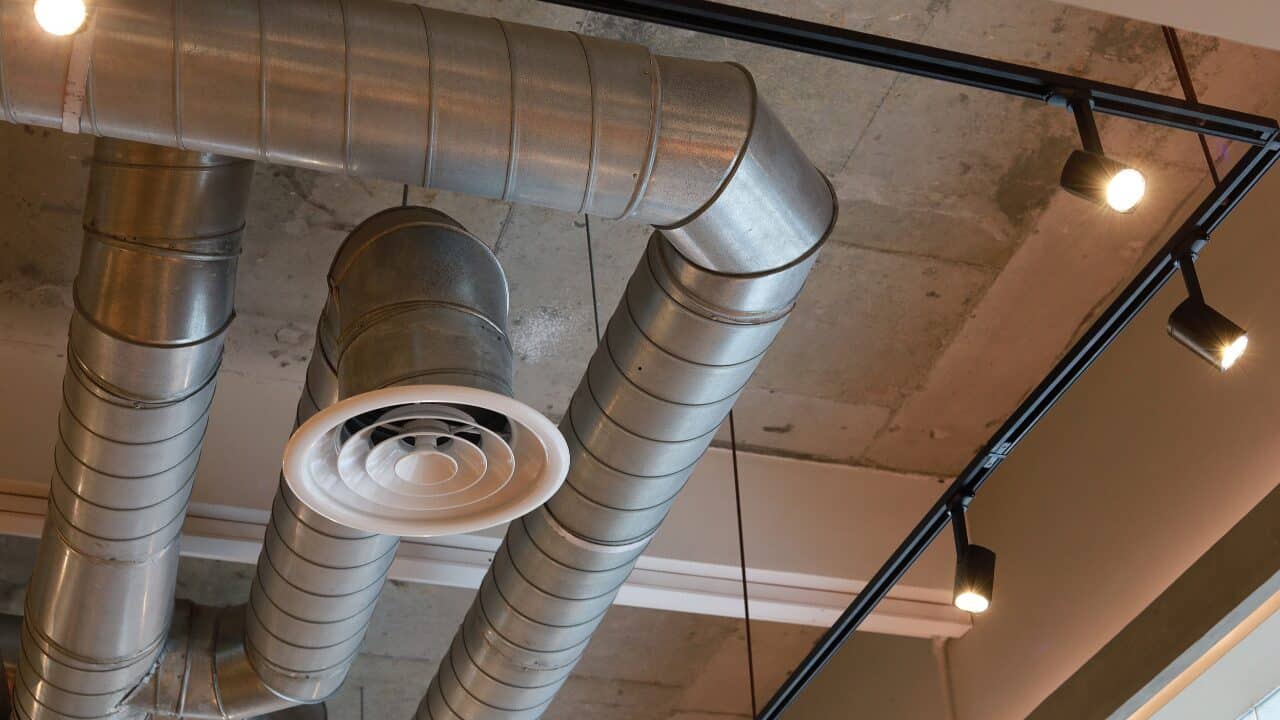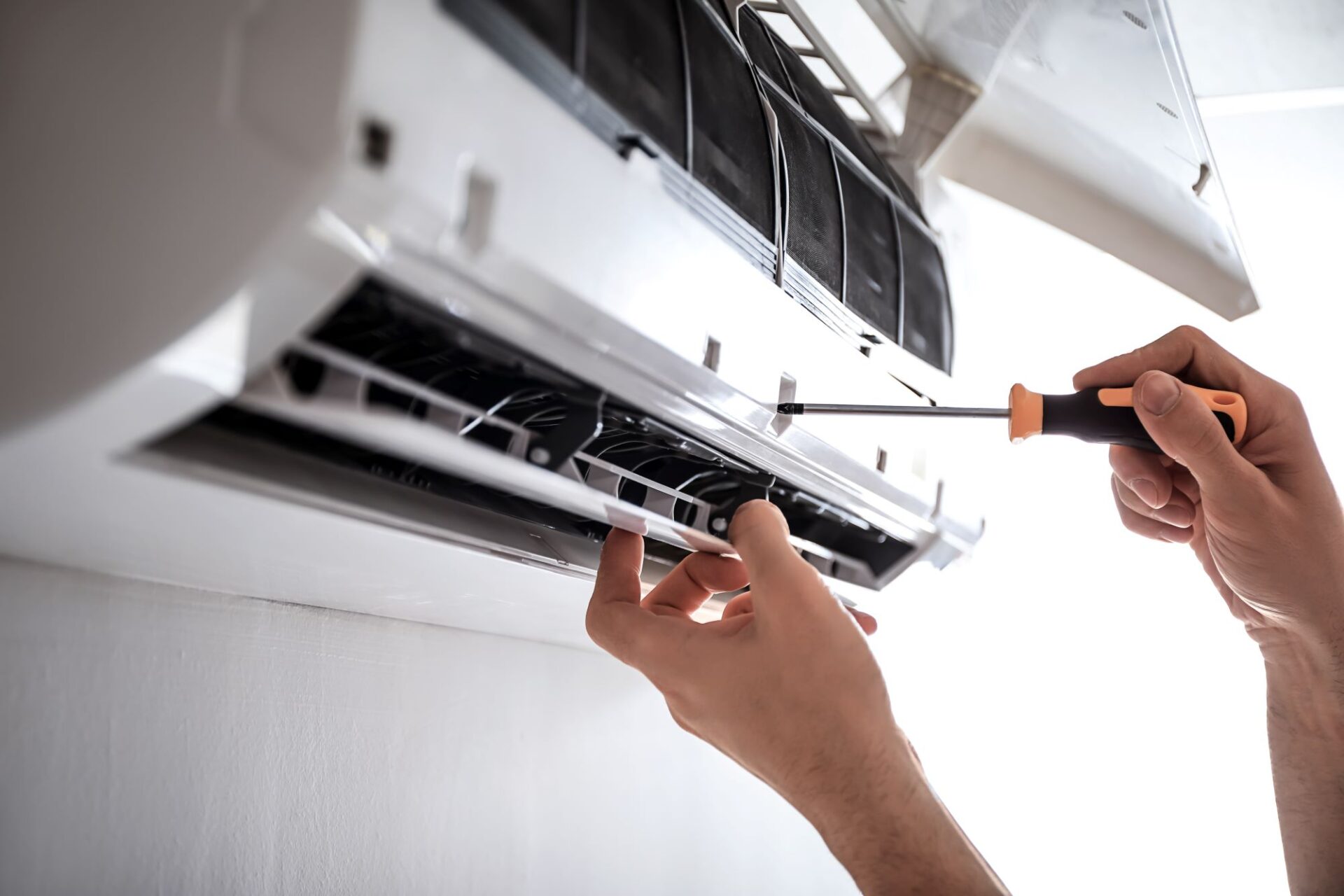Keeping your home super comfortable should always be at the top of your agenda in LA. On your mission to do just this, you may have encountered the terms AC and HVAC before, especially if you live in a warmer climate. Today’s article will explore what AC and HVAC mean and their differences, components, benefits, and disadvantages.
Table of Contents
What is an HVAC system? An In-depth Look
Firstly, let’s delve deeper into HVAC. HVAC stands for heating, ventilation, and air conditioning and refers to the whole system that controls your home’s temperature, air quality, airflow, and humidity. Below, we have listed some things you can usually find in an HVAC system.
- A heat pump or air conditioner that provides cooling.
- A heat pump or furnace that provides heating.
- A thermostat that regulates the temperature settings.
- A blower or fan that circulates the air in your home.
- A network of ducts that distributes cool or warm air throughout your home.
- A dehumidifier or humidifier that adjusts the moisture level in the air.
So, as explained above, an HVAC can provide heating and cooling functions with a single unit, such as a heat pump, or separate units, like a furnace or an air conditioner. Now, choosing the right HVAC for your home depends entirely on your budget, the climate you live in, and the space in your home to allow it to operate efficiently. For instance, you can choose from different types of HVAC, like a split system where some components are outside, and some are inside your home. If you chose a split system HVAC for your home, you might consider having a hybrid system to switch between gas and electric power sources.
What is an AC System? What You Must Know
As the summer sets in, the heat waves start ravaging every possible corner, and an air conditioning system emerges as an indispensable convenience for residences or offices. So, what is an AC system, and what do you really need to know about it for optimum usage and efficiency in operation before you check out AC services in the Greater Los Angeles area for your home?
Basic Elements of AC Systems
In essence, any cooling system, in its basic form, is an apparatus for removing heat and moisture within any air space of a building that is occupied with the overall intent of providing comfort to the occupants. There could be a central air conditioning system, a window unit, or portable air conditioners, but in all of these cases, air is replaced with cooler air through absorption from the room. It is a refrigerant that lies at the heart of any AC and has properties which at convenient temperatures let it change from gas to liquid. The AC system circulates the refrigerant via a series of actions involving compression, condensation, expansion, and evaporation.
- Compression: A compressor compresses the hot and compressed gas of the refrigerant towards a condenser. Heat from the gas moving into the coils of the condenser is transferred into the air outside; eventually, it condenses, becoming a cooler liquid. Now, the cooled refrigerant passes through the expansion valve, where it expands rapidly, and the chill it carries is also furthered, resulting in cold mist.
- Evaporation: The cold mist, in turn, passes through evaporator coils to absorb heat from the inside air. The heat absorbed by the refrigerant changes it from a liquid to a vapor and goes back to the compressor to start the cycle all over again.
Understanding a little bit about your AC system can help you take proper care of it, extend its life, and increase its efficiency. A few things that every owner of an AC system should know are:
- Routine maintenance: There’s nothing to say against the fact that any major appliance, such as an air conditioner, would require routine maintenance to function effectively. Everything is entailed right here, from the cleaning or replacement of filters to checkups on refrigerant levels and ensuring that the coils and other components are free from dirt or debris.
- Proper Sizing: Size matters where air conditioning is concerned. If the unit is sized too small, it will fail in cooling the space effectively, and if it’s too large, it will cycle too frequently, wearing out and creating inefficiency.
- Energy Efficiency: In recent times, AC systems are defined in terms of the Seasonal Energy Efficiency Ratio, which is a measure of air conditioning and heat pump cooling efficiency. In simple terms, it basically says in numbers how cost-effective your system is going to be; hence, the higher the SEER number, the higher the system efficiency.
- Smart Thermostats: These optimize air conditioning systems by variably controlling temperature in accordance with daily routine and preference so as to save money on energy bills. Understanding these aspects of your AC system will do much, not only in maintaining comfort in the house but contribute greatly towards energy conservation and being cost-effective.
A little knowledge proves invaluable, whether you are installing a new system or trying to optimize the performance of an existing one, in making an informed decision about your home’s cooling or heating requirements.





